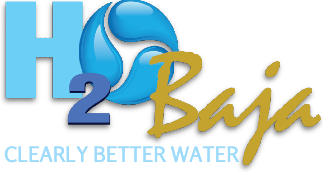WATER SOFTENERS BANNED!!
Well, this has been going on for several years now. Several states, including California and Texas, have been attempting to get rid of water softeners. What’s the big deal, you may ask? Pure and simple, it is the salt brine discharged into the sewer system and ultimately returning to streams, rivers, and the aquifer.
The WQA and PWQA have been lobbying hard against the ban, as well as filing injunctions with the courts. This is because they are owned and funded by the soft water industry. They finally lost on Nov. 4 to a local referendum by a 63.9% margin. Santa Clarita, CA, will be the first city to successfully put a stop to water softeners beginning Jan. 1, 2009, even though California’s current “Governator” recently refused to sign the bill even after it was passed by the legislature.
This is really a big deal. Water softeners have been with us for decades. How many remember “Hey, Culligan man!” from the fifties? Well, the Culligan man’s days are numbered if this trend continues, which I believe it will.
Water softeners served a useful purpose, though not fully understood by most people. While removing minerals, they also added sodium. Drinking water high in sodium is not beneficial, particularly for people with heart or circulatory problems. Plants and lawns don’t do well with sodium either, and faucets are eaten up by saltwater. This is why many homes had separate cold water lines for drinking and cooking that were not softened.
So what are we to do with all this hard water down here? Water hardness is generally measured in grains per gallon. Anything over 7 grains is considered hard, and our water hardness is around 10.5 grains or very hard. What’s a grain? A grain is equal to the weight of one kernel of wheat. Bet you didn’t know that!
Hard water has many negative characteristics, although it is very healthy to drink. Minerals, which cause hardness in water, have a wide impact on households. The minerals that make water hard are typically calcium and magnesium. According to Susan Quiring, Texas A&M Extension Housing Specialist, hard water interferes with almost every cleaning task from laundering and dishwashing to bathing and personal grooming. Clothes laundered in hard water may look dingy and feel harsh and scratchy. Dishes and glasses washed in hard water may be spotted on drying. Hard water may cause a film on glass shower doors, shower walls, and bathtubs. Hair washed in hard water may feel sticky and look dull.
Susan adds, “Hard water also affects the performance of household appliances. Researchers at New Mexico State University studied the effects of water quality on the performance of gas and electric residential water heaters. The one-year study measured the energy consumption of six gas and electric residential water heaters in use for 5 to 15 years in Las Cruces, New Mexico. Half of each group used the area’s untreated hard water exclusively. The other half used softened water exclusively. Results of the study showed that water heaters using only hard water consumed considerably more energy than those using only softened water.” According to the study, hard water scale buildup amounted to almost 40 pounds in some water heaters. Scale is a good insulator, so it takes more energy to heat your water, and we all know more energy is more money.
Would you like to know what else that scale buildup does? It prevents your UV water disinfection system from working properly, if at all. Every manufacturer states that a water softening device MUST be installed before the UV system when the water hardness is over 7 grains. Don’t believe it? Read your owner’s manual. Trojan, Sterolite, Pura, and all the rest require one.
We get people in our store all the time looking for replacement UV lamps. When we ask if they have a water softening device, they get a blank look on their face and answer no. Why do you want a new UV lamp, Gringo? Your cool $1250 UV water disinfection system doesn’t work without a water softening device. Read the specs!!
There are quite a few water softeners in Los Cabos. Many are not functioning anymore and are just taking up space in a garage or equipment room. Rock salt can be hard to find, and so are parts and finding someone knowledgeable enough to install them. There are times when the only solution is a water softener, and H2O Baja sells and services their own line of softeners, including twin alternating tanks for hotels and large consumers.
Is softened water harmful to plants, lawns, and gardens? Softened water is not recommended for watering plants, lawns, and gardens due to its sodium content. Care must also be taken that water used in recharging a water softener be disposed through a storm drain or sewer due to its damaging effects. If you are on a septic tank, the logical method of brine disposal is to discharge the brine into the septic tank and soil absorption field where some leaching of sodium salts will occur. Other alternatives include a separate holding tank that could be evacuated by a vacuum truck or a separate disposal field or discharge point that does not affect neighbors’ property.
Bill Bugg
H2O Baja Water Products
